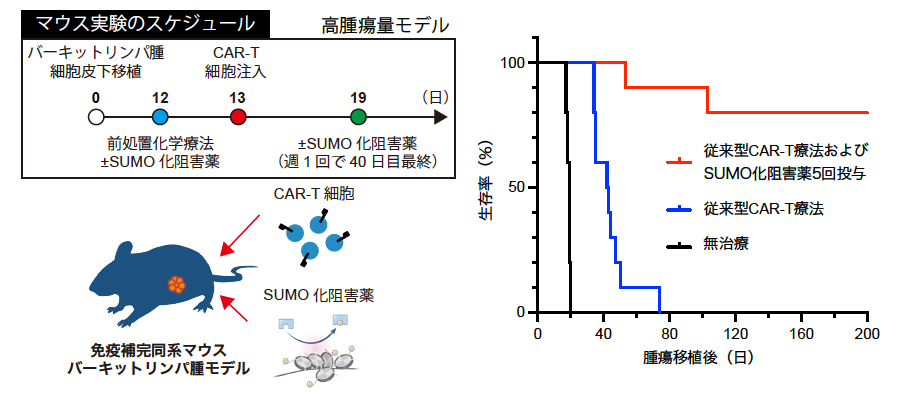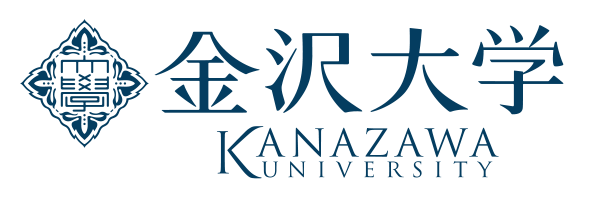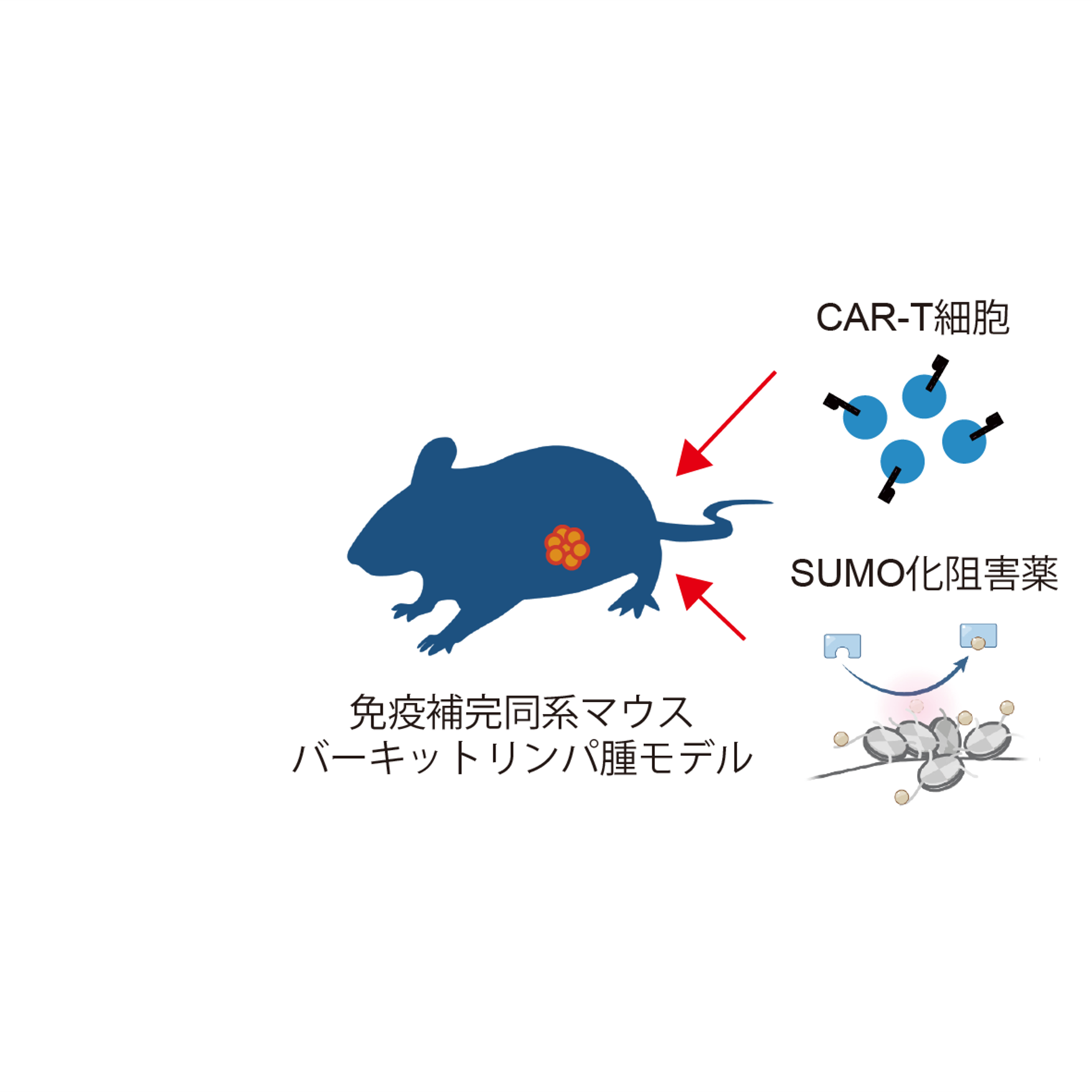金沢大学がん進展制御研究所の小谷浩助教らの研究グループは、バーキットリンパ腫に対して、CAR-T 細胞療法(※1)に MYC(※2)の阻害作用を示す治療を追加することで、飛躍的に治癒率を高める革新的な治療法の開発に成功しました。
バーキットリンパ腫は、血液がんの悪性リンパ腫の一種で MYC 遺伝子の転座が特徴的で、特に小児や若年成人にみられる非常に進行が早い稀な病気です。近年、一部の血液がんに対しては、CAR-T 細胞療法が承認され、治療方法の選択肢として注目されていますが、バーキットリンパ腫に対しては有効性が限定的であると報告されています。また、病態の中心にある MYC を直接標的にした治療薬は、長年開発が進んでおらず、バーキットリンパ腫に対する新たな治療法の開発が切望されています。
本研究では、小谷助教らが最近発見した、SUMO 化(※3)経路を阻害するエピゲノム治療薬(※4)が MYC を阻害する作用(参考文献 1)および免疫反応を活性化する作用(参考文献 2)に着目し、これらをバーキットリンパ腫に応用しました。さらに、CAR-T細胞療法と組み合わせることで、治癒率が飛躍的に向上することを示しました。
この成果は、治療選択肢が限られている希少がんに対して、免疫療法とエピゲノム治療薬を組み合わせた新たなアプローチの可能性を示すものであり、将来的には患者のQOL 向上や治療成績の改善につながることが期待されます。さらに、これらの知見は将来、バーキットリンパ腫に対する新たな根治療法の臨床開発に活用されることが期待されます。
本研究成果は、2025 年 10 月 3 日午前 1 時(中央ヨーロッパ時間)に国際学術誌『Signal Transduction and Targeted Therapy』のオンライン版に掲載されました。

図1:バーキットリンパ腫に対する新たな根治療法
【用語解説】
※1:CAR-T 細胞療法
CAR-T 細胞療法は、キメラ抗原受容体(chimeric antigen receptor:CAR)T 細胞療法の略称で、遺伝子医療の技術を用いて特定の細胞表面分子に結合する CAR と呼ばれる合成タンパク質を作ることができるように改変した T 細胞を用いた治療法です。現在は、患者さん自身から取り出した T 細胞を用いて CAR-T 細胞を作成し、再び患者さんへ戻す治療法が行われています。
※2:MYC
MYC は、細胞の増殖、分化などに関わる遺伝子の発現を調節する転写因子です。MYC遺伝子の異常な活性化は、がんの発生や進行に深く関わっています。
※3:SUMO 化
SUMO 化は、タンパク質の翻訳後修飾の一つで、低分子ユビキチン様修飾因子(small ubiquitin-like modifier:SUMO)と呼ばれるタンパク質が、他のタンパク質に結合する現象です。
※4:エピゲノム薬
遺伝子の発現を調節するエピゲノムを標的とした治療薬です。遺伝子のスイッチのような役割をするエピゲノムに変化を与え、がん治療に役立つことが期待されています。
【参考文献】
1)Dual inhibition of SUMOylation and MEK conquers MYC-expressing KRAS-mutant cancers by accumulating DNA damage.
Kotani H, Oshima H, Boucher JC, Yamano T, Sakaguchi H, Sato S, Fukuda K, Nishiyama A, Yamashita K, Ohtsubo K, Takeuchi S, Nishiuchi T, Oshima M, Davila ML, Yano S. J Biomed Sci. 2024;31(1):68.
ジャーナル名:Signal Transduction and Targeted Therapy
研究者情報:小谷 浩







 PAGE TOP
PAGE TOP